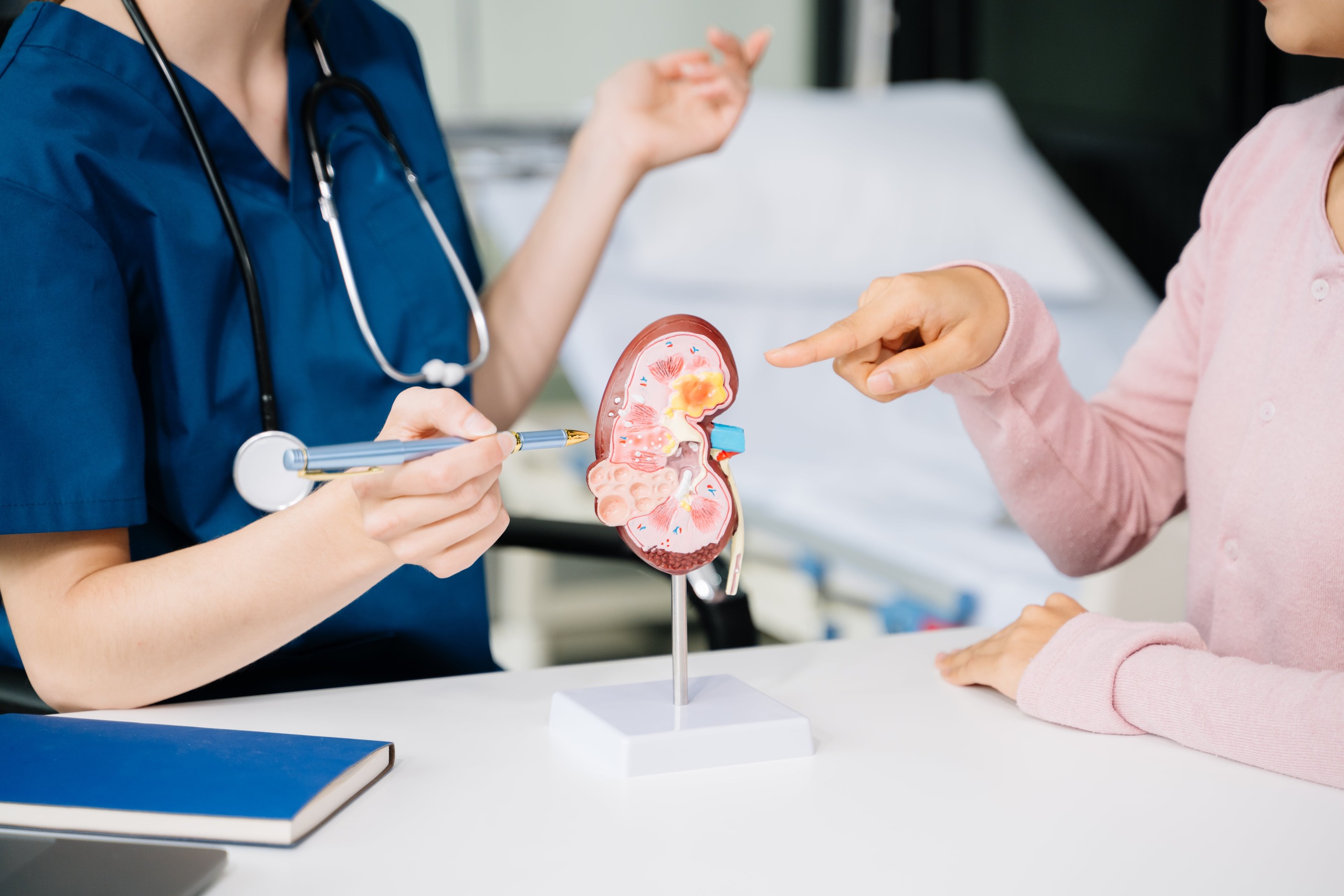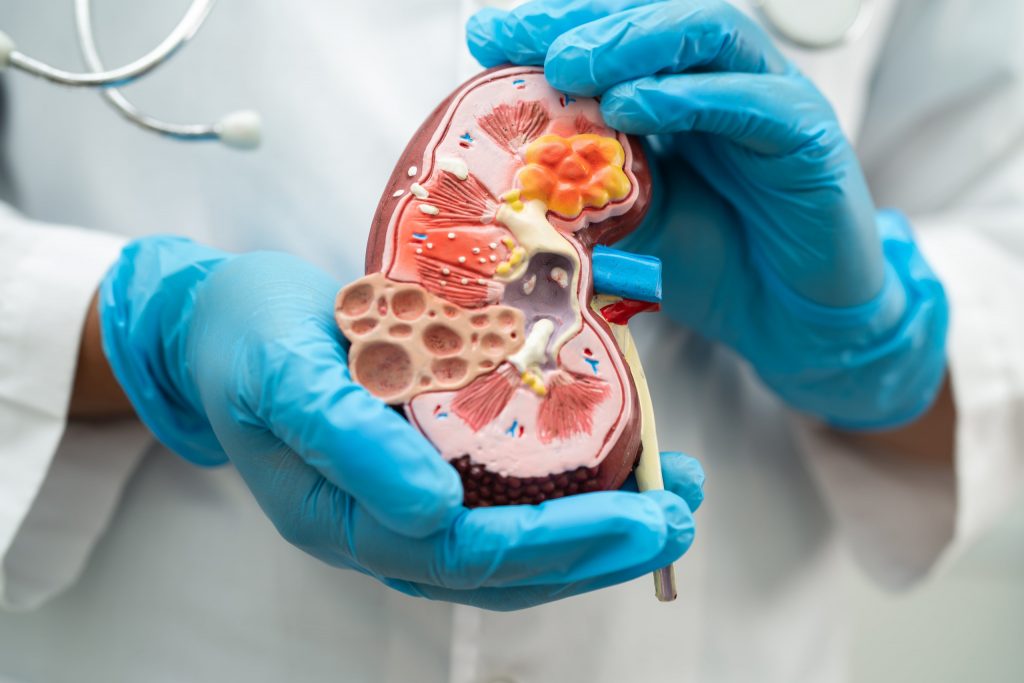Two vital bean-shaped organs, the kidneys help to keep the body healthy generally. Natural filters, they eliminate waste items from the blood, manage fluid balance, and assist to lower blood pressure. Beyond waste removal, kidneys are essential for controlling electrolyte levels and manufacturing hormones that affect red blood cell count. Considering their heavy responsibilities, a long, active life depends on renal condition. Sadly, kidney issues like urinary tract infections, kidney stones, and chronic kidney disease (CKD) affect millions of individuals globally most of which have significant medical repercussions. Those who give kidney health first importance by way of lifestyle choices like sufficient hydration, a balanced diet, and regular exercise will considerably reduce their risk of common problems. Promoting renal wellness goes beyond simply avoiding sickness to include boosting energy and making sure our bodies run as they should all through our lives.
The Basics of Kidney Health: Understanding Their Role in the Body
Two little but powerful organs, the kidneys are absolutely essential for maintaining your body’s health. Their major responsibilities are to eliminate waste and poisons from your blood, which the body gets rid of through urine. Think of the kidneys as your body’s natural filter; they ensure that harmful poisons never gather and create problems. Your body’s proper fluid balance determines everything from digestion to temperature management and allows you to survive.
Apart from balancing fluids and waste filtration, the kidneys control blood pressure. They control your body’s salt and fluid content to do this. Well functioning kidneys help control your blood pressure, which is crucial for avoiding heart disease and other major medical problems. The general health of your body depends on functioning kidneys, which support several processes maintaining your energy and pleasant mood. A pleasant, healthy life depends on your kidneys being under maintenance.

Key Lifestyle Changes for Maintaining Healthy Kidneys
Maintaining good kidneys mostly depends on diet, water, frequent exercise, and avoidance of pollutants. A balanced diet high in fruits, vegetables, whole grains, and lean proteins helps kidneys run as they should. Whole grains, leafy greens, and berries are among the foods bursting with nutrients meant to lower inflammation and preserve general health. Your kidneys will also benefit from include good sources of fats as avocados and almonds. Conversely, aim to cut processed foods, which frequently have excessive levels of sugar, salt, and bad fats. Too much salt increases blood pressure, therefore taxing your kidneys.
Kidney function depends also on hydration. Enough water aids in more efficient waste and toxin flushing by your kidneys. Though your needs may change according on your activity level and environment, aim for about 8 glasses a day. If you exercise, you could require even more fluids to keep correctly hydrated. Regarding physical activity, consistent exercise may help your kidneys be much better! Try to get at least 150 minutes every week of moderate exercise—that is, anything from cycling to walking. All vital elements for avoiding renal problems, this helps regulate weight, blood pressure, and blood sugar levels. Get active, stay hydrated, and enjoy those nutritious meals to maintain your kidneys in fantastic form.
The Importance of Regular Check-ups and Monitoring Kidney Function
Everybody should get annual check-ups, but those who run renal disease—that instance, those with diabetes or high blood pressure—should especially value them. Because it usually exhibits no symptoms until it becomes severe, many people are unaware they have chronic kidney disease (CKD). Frequent visits let your doctor monitor your kidney condition, therefore perhaps identifying any problems early on. In this sense, you may control your health and stop further difficulties by acting beforehand.
Your physician may advise kidney function tests like the GFR (glomerular filtration rate) blood test and a urine test to evaluate kidney condition at these visits. These tests help to find any issues before they become more serious, thereby enabling quick treatment. Should you be at danger, immediately discuss these testing with your doctor. Maintaining knowledge of your kidney performance can enable you to make better decisions and guide long-term kidney preservation.
Recognizing the Early Signs of Kidney Issues
Though they are sometimes overlooked, early warning signals of kidney disease are absolutely vital for identifying problems before they become more severe. Look for changes in urination, including painful urination, a stronger need to urinate—particularly at night—or blood in your urine that could seem pink or black. Other problems include high blood pressure, excessive weariness or weakness, face or wrist or foot edema, and Though modest, these symptoms might point to your kidneys not functioning as they should.
Should you see any of these warning signals, you should seek medical help immediately. Early discovery can greatly affect kidney function and help to avert more serious damage. Regular medical visits can identify problems early on, particularly in cases with diabetes or a family history of kidney disease. Acting now will help your kidneys—and general health—stay on target over the long haul.

Conclusion
Overall well-being depends on maintaining kidney health as the kidneys are so important for controlling fundamental bodily processes, waste filtration, and hormone production supporting different physiological activities. Simple but effective actions will help you protect your kidneys: keep active via regular exercise; drink enough water; control blood pressure and blood sugar levels. Moreover, renal condition may be much improved by changing to a better diet, giving up smoking, and avoiding NSAID misuse. Remember, prevention is very important; over time, regular little lifestyle adjustments can help your kidney function and general health to be permanently improved.

